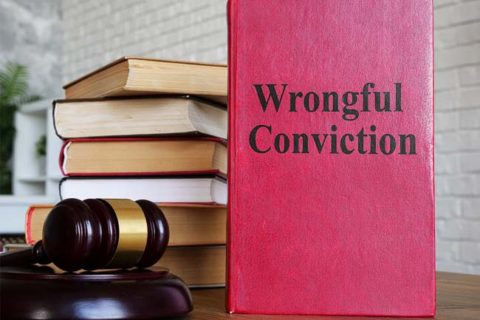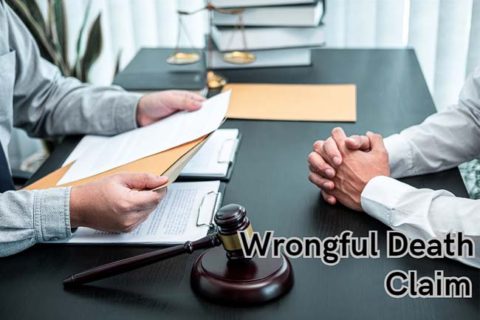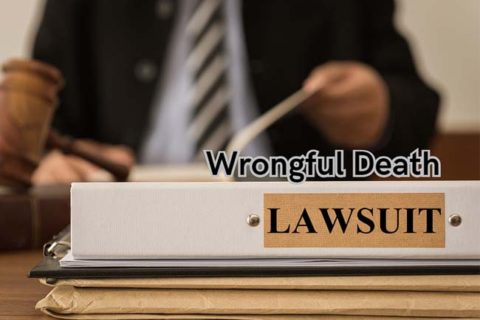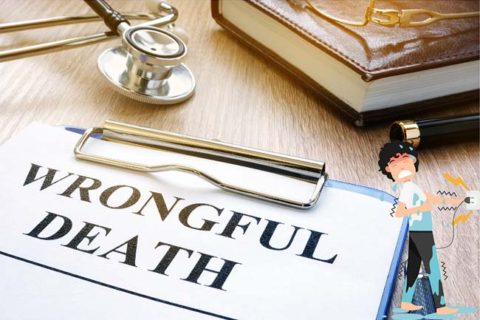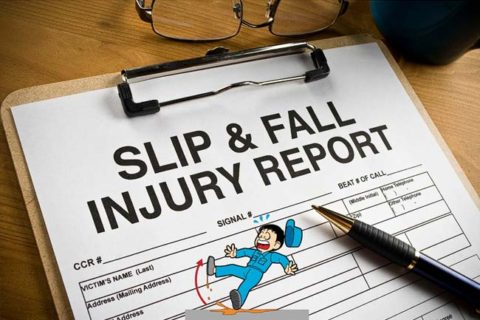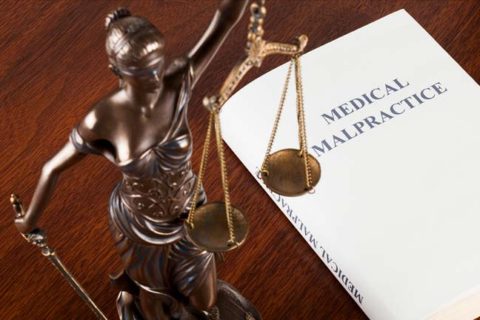After experiencing a slip-and-fall accident on someone’s property, the first thing you may think about is how to get compensation for your injuries. You also realize that doing this will take time, energy, and money, especially if you ask for legal assistance.
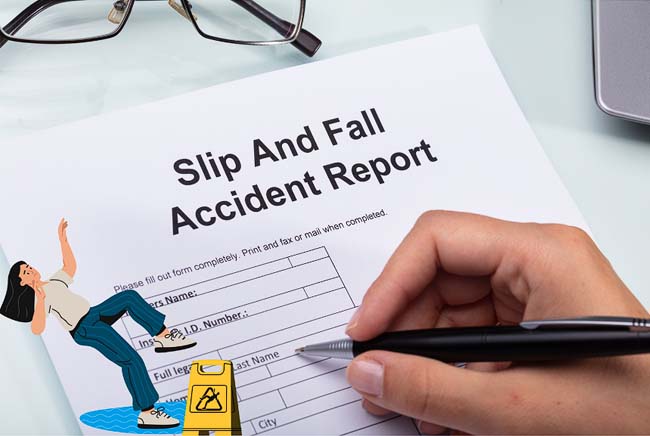
But what if you choose to handle it yourself? Will it have the potential to be successful? If so, you must first learn how to organize your case yourself without a lawyer. Now, let’s discover it below!
What is a Slip and Fall Accident?
Slips and falls are often considered common accidents, but in fact they can be categorized as a type of accident that can result in physical injury, either minor or severe, such as serious fractures and brain injuries. Apart from that, this will have an emotional and financial impact on the victim.
Throughout history, slip-and-fall accidents have often been used as comedy, and many people think that they are not serious injuries. According to the Center for Disease Control, unintentional falls, including slip-and-fall accidents, are the leading cause of non-fatal injury after a car accident, accounting for 15% of accidental deaths.
Even though you may experience a minor slip-and-fall accident, it may result in pain and loss, such as your cell phone or laptop you were holding falling.
Who Must Be Responsible for a Slip-and-Fall Accident?
If a claim is filed by a victim, the individual who must be responsible for the slip-and-fall accident is the property owner where the incident occurred. The accident can happen in various locations, including:
-
- Hotels
- Shopping malls
- Parking garages
- Government offices
- Restaurants
- Apartment buildings
- Etc.
As property owners, they should be responsible for taking care of parking lots, stairs, paths, and other areas that are frequently accessed by visitors.
For example, hotel owners are obliged to ensure the visitor’s security and safety. If there’s a spill of water, oil, or whatever in the lobby, the hotel staff must immediately put up a sign warning about the spill and ask the cleaning staff to clean it up before someone might slip and fall.
If they failed to repair a dangerous condition on their property and you were injured in a slip-and-fall accident, you can get legal assistance. The property owner may have to cover your losses from slip-and-fall accidents, including lost wages, medical bills, pain and suffering, etc.
Is It Necessary to Get a Lawyer After a Slip-and-Fall Accident?
Actually, you’re not required to hire a lawyer, especially if you suffered a minor injury in a slip-and-fall accident. You can instead file an injury claim yourself. Then, you also need to negotiate a settlement and represent yourself in court.
One thing is for sure: you may face tough challenges on your own because you need to get in touch with the property owners, the at-fault’s insurance company, and their lawyers all by yourself.
Since slip-and-fall accidents do not have a clear cause, lawsuits could be difficult to bring to court. Worse, the property owner may contest your case and perhaps argue that your carelessness is what caused your fall.
The American Bar Association (ABA) reported that some studies demonstrate that three out of five people are at a significant disadvantage when they choose to represent themselves in a civil court case.
Sure, strong consideration is required when you file a claim for your slip and fall accident, whether you do it yourself or hire a lawyer.
Read also: Lawyer Female Washington DC Personal Injury
How to Settle a Slip-and-Fall Claim Without a Lawyer?
A valid and comprehensive evidence must be provided if you prefer to file a slip-and-fall claim yourself without hiring a lawyer. It is actually to confirm that you got into a slip-and-fall accident due to the property owner’s negligence.
Another important thing is that you also have to show what damage you experienced. To potentially reach a satisfying settlement, presenting expert witnesses for your case is a must.
Before you file a slip-and-fall claim, you should learn how the claim process works. You also have to find out how much your claim is worth before negotiating with the at-fault party.
Without the help of a lawyer, you should be able to recognize anything that may arise when you’re out of control. In order to obtain fair compensation, you should be willing to defend yourself and your case.
Sure, there are several things you need to prepare for filing a slip-and-fall accident, including:
1. How serious is your injury?
There will be two types of injuries that you experience after a slip-and-fall accident, i.e., minor and serious. And each will have a different settlement.
For minor injuries, for example, if you slip and fall in a restaurant because you stepped on spilled water on the floor and sprained your leg, the restaurant owner will be willing to provide compensation for your medical costs. Of course, this has been resolved, and there is no need for a lawsuit.
But if you get a serious injury and must undergo intensive and repeated treatment, as well as loss of wages due to having to stop working, you can file a lawsuit. If you’re eligible, you may receive higher compensation for your accident-related injuries and losses.
2. Evidence of the fault
To make it easier to get a satisfactory settlement on your own, you must be able to prove that the slip-and-fall accident was truly the property owner’s fault.
If you have witnesses, you can ask them to represent you. However, the guilty party may defend themselves and blame you by arguing that you were not paying attention to your surroundings, so you slipped.
Here’s a step-by-step you can take to file a slip-and-fall claim without a lawyer!
Step 1: Prepare all documents and evidence
-
- Take pictures of the accident scene, your injuries, and property damages.
- Get a medical examination immediately. To pay initial bills, you can use your personal injury protection insurance coverage.
- Request a copy of the police report if you made it after the accident.
- Make sure to keep all receipts and never give a recorded statement to the at-fault’s insurance adjuster.
- Understand the deadline for filing a claim, which is called the “personal injury statute of limitations.” However, the deadline can vary from state to state.
- Don’t post anything about your accident on social media since it can harm your case.
Step 2: Estimate the damages
You should know that there are two types of damages in personal injury cases, including:
1. Special damages
Special damage is a type of damage that can be exactly calculated and could be:
-
- Property damage (costs to repair or replace your vehicle’s damages).
- Lost income
- Lost earning capacity
- Medical bills
- Other financial losses
These damages can be calculated precisely because you can easily predict them in dollar terms. However, it is easier to calculate medical bills and property damage than it is to calculate lost income. complicated.
2. General damages
General damage is a type of damage that cannot be calculated because it is intangible. It could be mental and physical pain you suffer after a slip-and-fall accident. However, damages for pain and suffering are the most controversial issues in personal injury cases.
In estimating how much compensation is given for this type of loss, the insurance adjuster will use the multiplier method, which works by multiplying the total amount of your medical expenses with a number between 1.5 and 5.
The basis for this multiplier figure is based on several factors that can influence the outcome of a case, including:
-
- The extent of your injury
- The nature of your injury
- Is your injury easy for the jury to understand?
- The type of medical care you received, such as hospital bills
- How pleasant and credible you are.
- How likeable and credible your opponents are
Step 3: Send your demand letter
The starting point for serious settlement negotiations on a personal injury claim is sending a letter of demand.
However, you can only send a demand letter after you have investigated the circumstances of the accident and looked at the overall impact of your injury on all aspects of your life. After that, you can reasonably predict the amount of damages for your injury claim.
Step 4: Accept or Counter a Settlement
After the at-fault insurance company receives your demand letter, they may provide a bargain to settle your injury claim out of court. If they offer an acceptable settlement, you can create an agreement in writing.
If you sign the written agreement, it means you agree to waive your right to sue your opponent in exchange for settlement money.
If you cannot accept the offer because it is not commensurate with your losses and the agreement cannot be reached, you can prepare to file a personal injury lawsuit in court.
Well, that’s what you can do if you prefer to settle your personal injury claim due to a slip-and-fall accident yourself without a lawyer.
Pros and Cons of Claiming a Slip-and-Fall Without a Lawyer
It’s important for you to identify the pros and cons you may get if you file a slip-and-fall claim yourself. Take a look at them!
Pros
- You can save money on legal fees since you do not have to pay a lawyer to handle your case.
- You may receive your compensation faster.
- You can get more compensation for your injuries.
- You will waste your time since you should get in touch with several parties.
- You can know what the process of a slip-and-fall accident claim is.
Cons
- You’ll need a longer time until you really reach settlement.
- You may not focus on recovering from your injury because you have to take care of all aspects yourself.
- The process is more complicated.
- You may not reach an agreement if the at-fault party contests your claim with the help of their lawyer.
- You should represent yourself in every single claim process and appear in court alone.
Helpful tips: You should be polite to the insurance adjuster to get the best results in your case. Make sure to have reasonable expectations and explain your story in an interesting way. In addition, you must also demonstrate clear responsibility and keep records of all your injuries.

A bookworm and researcher especially related to law and citizenship education. I spend time every day in front of the internet and the campus library.
